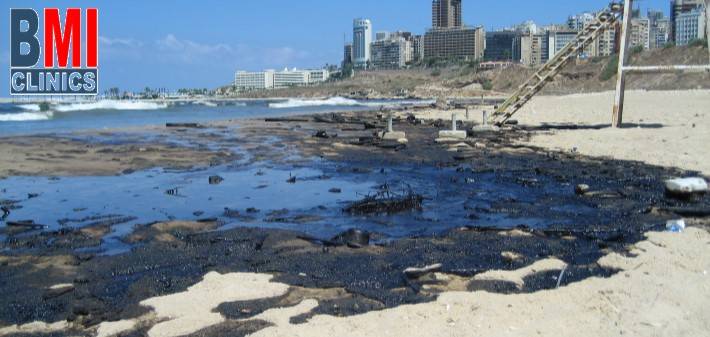Lebanon unlike most other Middle Eastern countries is blessed with an abundant supply of annual rainfall. The bad news is that most of Lebanon water sources is polluted and unfit for domestic use. This article will consider the various factors responsible for water pollution in Lebanon.
Untreated Sewage
One of the major contaminants of water sources in Lebanon is untreated sewage. According to a study, 70% of all fresh water sources were exposed to untreated sewage from various homes and business premises. Among this sewage were also industrial effluents. This has led to a significant microbial contamination of the water aside the significant alteration in the color of the water. This development has made most of the fresh water found in Lebanon unfit for domestic use. The northern city of Tripoli is the region with the highest reported cases of fresh water contamination. On the other hand, the Nahr Ibrahim River and Litani River are regarded as the two most polluted rivers in Lebanon. Another sad incidence is the restriction of the use of the Qaraoun Lake for fishing because of an overwhelming presence of heavy metal from industrial effluents. Practically all rivers in Lebanon suffer the consequences of dumped industrial waste.
Industrial effluent into the sea
Another type of water contamination in Lebanon is Industrial effluents into the sea. According to a recent survey, it was discovered that the seawater had a high incidence of chemical contamination. A research discovered that 30% of all fish caught off the coast of Lebanon had plastic in their stomach. This is due to the illegal dumping of plastic wastes into the sea by industries. More so, a recent study concluded that plastic contaminants were encountered under water of the Lebanese shore. In addition, disposed oil from ships and wastes are also part of the causes of water pollution in Lebanon.
Water pollution in Lebanon from agrochemicals
Another source of water pollution in Lebanon is the use of fertilizers and pesticides. Farmers in Lebanon use pesticides and fertilizers without conformity with government regulation. At a point, the government was able to put in place an effective protocol to curb the abuse of fertilizers and pesticides. However, Government efforts to regulate agricultural activities to prevent pollution suffered serious setbacks.
Water pollution from improperly disposed solid waste
Another cause of water pollution in Lebanon is that solid waste are improperly disposed into water sources. This occurrence prompted Lebanon’s Ministry of Environment to issue a waste management directive putting an end to the use of incineration. This is because when solid wastes are incinerated, the particles remaining are carried by flood to contaminate fresh water sources when heavy rain falls. Nevertheless the robust regulation that had been instituted to combat indiscriminate disposal of solid waste was inefficient, and the practice continued. Solid wastes are still being incinerated all over the municipalities, causing water pollution when rainfalls and carrying wastes into rivers lakes and other freshwater sources.
At a point, the Government suggested recycling as one of the ways of putting an end to the menace of indiscriminate dumping of solid wastes. However, the recycling initiative of the government backfired, as it became a haven of scavengers who use little children to pick up scrap of metals and plastic.
Landfilling
Landfilling is another cause of water pollution in Lebanon. Lebanon produces over 150 tons of waste daily. One of the usual ways of disposing this waste is by land filling them. The consequence of this is that when rain falls, the liquid part of the waste are carried by flood to cause pollution of fresh water sources.
Historically, the government of Lebanon took several steps and instituted numerous reforms to fight water pollution. Because of the political situation, these reforms were never instituted.









